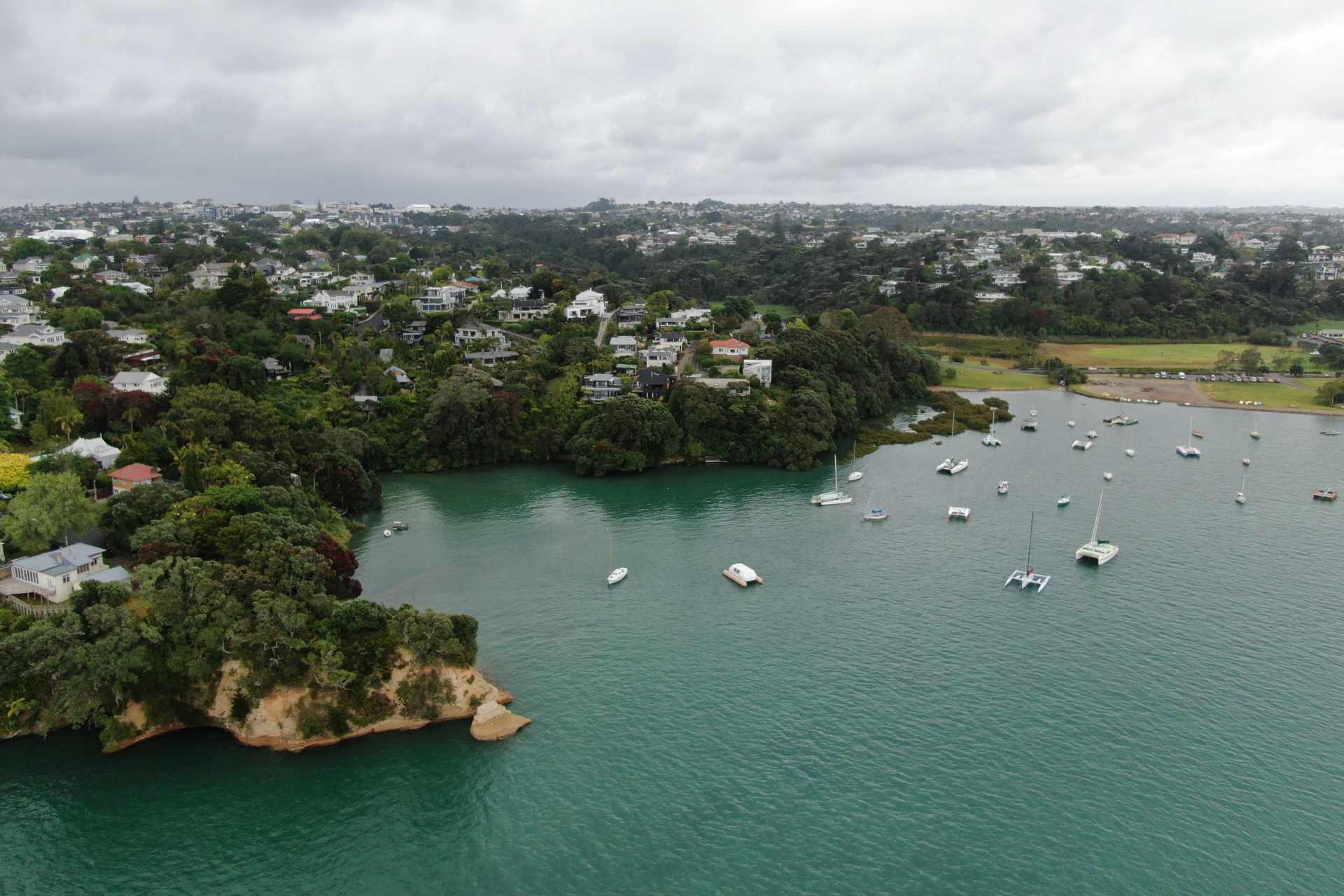What Happened to North Shore’s Steam System?
Before Auckland became a Super City, North Shore City quietly achieved something remarkable: it kept its streets largely chemical-free for over 20 years.
Using steam and hot water systems—paired with manual weedeating and minimal glyphosate—the council maintained a successful, cost-effective alternative to herbicides. Hot water was applied every eight weeks, steam every six, and glyphosate only used three times a year, for the worst offenders.
That all changed in 2010, when North Shore and six other councils were merged into a single Auckland Council. From that point on, the push was on to “standardise processes” across all local boards. And with that bureaucratic rebrand came a quiet but deliberate retreat from steam.
The Excuse? Standardisation. The Reality? Chemicals Returned.
By 2020, Auckland Council’s so-called Project Streetscapes was in motion. The goal: one method, one contract, one chemical regime. Gone were the local preferences. Gone too, it seems, were the community voices that had helped keep North Shore glyphosate-free for decades.
Instead of improving or building on the thermal legacy, Auckland Council proposed botanical herbicides (made from ingredients like pine oil or pelargonic acid) with spot glyphosate application—a move that eliminated steam and hot water control altogether.
The Numbers Didn’t Add Up—But No One Listened
Council officials claimed steam would cost up to $3,200 per kilometre—three times the cost of chemical methods. But internal reviews and community audits told a different story: real-world steam costs were closer to $1,186/km, practically on par with the botanical herbicide alternatives Council was already recommending.
Even local suppliers disputed the council’s numbers. Some said they could offer thermal methods “for a huge amount less.”
So why wasn’t this challenged? Why weren’t these discrepancies investigated further? And why was a proven system scrapped instead of scaled?
Local Boards Fought Back—but Were Overruled
The Kaipātiki Local Board, whose region includes much of the old North Shore, objected. They pointed out that thermal methods had been working successfully for over 20 years—and should be trialled further before being discarded.
Other councillors, including John Watson and Greg Sayers, raised similar concerns. But in the end, it didn’t matter. The decision had already been made. Cost inflation and political expedience won out over common sense.
Meanwhile, Dorset Council Is Trialling Exactly What We Abandoned
Across the world in the UK, Dorset Council is now doing what North Shore was doing twenty years ago—trialling hot foam, steam, and non-chemical alternatives to glyphosate. Their program is being shaped by community input, waterway monitoring, and a cautious, informed rollout.
And they’re not alone. Just up the motorway, Gloucester City Council is preparing to phase out glyphosate altogether as part of a wider Urban Greening Strategy. Their plan ties weed control to climate resilience, insect population recovery, and public health. One councillor called glyphosate “a cancer-linked weedkiller still being sprayed on our streets,” while another pointed to international bans as reason enough to act.
Which begs the question: if it made sense in 2000, and it makes sense in Dorset and Gloucester in 2025, why doesn’t it make sense in Auckland today?
A Timely Reminder: The Baby Who Changed a Borough
We’ve seen what can happen when a community refuses to forget. Just days ago, we shared the story of a sick baby in Ellerslie—The Baby Who Changed a Borough—and how one mother’s persistence led to a local ban on chemical spraying. It’s a powerful reminder that real change doesn’t always come from government. It often starts with a worried parent, a public park, or a few neighbours asking the right questions.
Election Year Is the Time to Ask Hard Questions
As we head into the 2025 Local Body Elections, we think this matters.
Because every time we spray our parks, sports fields, school grounds, and road verges with glyphosate—or its so-called “inert” cousins—we’re making a decision. A decision that affects children’s health. Insect life. Soil biology. Our food systems.
And these decisions aren’t just made in Wellington. They’re made right here in your backyard, by your local council.
So maybe it’s time to ask:
- Why was a safer system abandoned when it was already working?
- Who benefits from maintaining chemical contracts?
- What’s stopping us from trialling thermal again?
- And which local board members or councillors have supported meaningful change?
If your local board member or councillor can’t answer these questions—or worse, hasn’t even asked them—you might want to ask why they deserve your vote in October.
Let’s Bring the Issue Back Into the Public Eye
This is more than a nostalgia piece. It’s a warning. A case study. And maybe a spark.
Because public health shouldn’t be sacrificed for convenience.
And steam shouldn’t have to fight fire just to be heard.
Resources & References
Because claims need context—and facts deserve footnotes.
We believe every statement should stand on something stronger than repetition. The following sources provide the factual backbone to this story: from cost comparisons that never made the headlines, to board minutes that were quietly overruled, to international councils still trialling what Auckland once abandoned. Together, they form a paper trail worth reading.
Weedingtech NZ – Steam-Based Weed Control Technology
Weedingtech supplies Foamstream, a steam-and-foam system used widely beyond NZ as a fully chemical-free alternative to glyphosate. Its presence strengthens the case that thermal systems are available and effective.
https://weedingtech.com/
PricewaterhouseCoopers (2015). Review of weed control costs for hard edges in parks
This review found that hot water and steam systems cost around NZ $1,186/km—significantly lower than Auckland Council’s later claim of $3,200/km. It compared thermal methods to glyphosate ($300–$779/km) and plant-based herbicides (~$1,293/km), demonstrating cost-competitiveness.
View report (PDF download)
Weed Management Advisory Group (2019). Separating Fact from Fiction: An Independent Review of Auckland Council’s Proposed Changes to Weed Management
This independent review challenges key claims made by Auckland Council, including the cost inflation of thermal methods. It reinforces that steam systems were both affordable and previously effective in areas like the North Shore.
Read the review here.
Kaipātiki Local Board Minutes (Sept 2020)
The board unanimously opposed dropping steam/hot water systems, citing their 20-year success on the North Shore. They publicly urged council to trial thermal methods before moving to uniform chemical regimes.
Read the minutes here – (search for Glyphosate)
Rod Sheridan (Feb 2019). Project Streetscapes – Weed Management, Auckland Council
The official internal report outlining weed-control methodologies under review—including glyphosate, botanical herbicide, and thermal (hot water/steam/foam)—and confirming legacy variation from pre-amalgamation councils.
Read this report here.
The Baby Who Changed a Borough – No More Glyphosate
A moving Ellerslie-based campaign led by a concerned parent, which succeeded in getting a local chemical spray ban. This story illustrates the power of grassroots action to drive policy change.
https://nomoreglyphosate.nz/the-baby-who-changed-a-borough/
Dorset Council Trials Glyphosate Alternatives – Bournemouth Echo
Highlights Dorset Council’s current experimentation with steam, hot foam, and other non-glyphosate methods—paralleling what was dropped in Auckland but is still viable today.
Read about this on the UK’s
Daily Echo
Gloucester City Council Urban Greening Strategy (2024)
Council proposal to phase out glyphosate across public spaces in favour of climate-resilient and biodiversity-supportive greening methods.
BBC News
We don’t expect you to take our word for it—
That’s the problem with most public discourse today.
Read the documents. Question the numbers. Ask your council what they’ve done—and what they haven’t.
Because real accountability doesn’t come from headlines, it starts with people paying attention.
Image Source & Attribution
We’re grateful to the talented photographers and designers whose work enhances our content. The feature image on this page is by juliuscwt.




